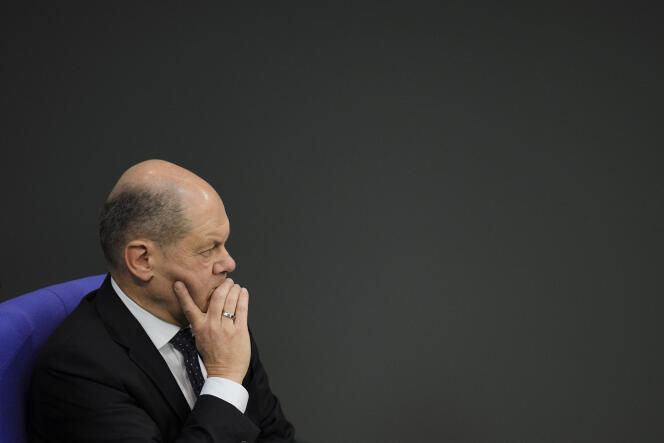


In rejecting the allocation to a "climate and economic transformation fund" of €60 billion originally earmarked for the fight against Covid-19, the German Constitutional Court has not simply inflicted a severe blow on Olaf Scholz's government. It has also plunged the European Union (EU) into a state of deep concern, at a time when the 27 must make several important budgetary decisions in the near future and will have to invest massively in their environmental and digital transition if they do not want to be relegated to the second division behind the United States and China.
Against this backdrop, the meeting of European finance ministers scheduled for Thursday, December 7, and Friday, December 8, in Brussels will serve as a test. The meeting will focus on a number of issues on which the November 15 ruling by the constitutional judges in Karlsruhe could have major consequences: the revision of the EU budget for the period 2024-2027 and, to a lesser extent, the reform of the Stability and Growth Pact.
Since the summer, two camps have been clashing over the question of the EU's new financial needs. The "frugal" countries, led by Germany, say they are ready to approve €50 billion in aid for Ukraine, while those in the south of the continent – led by Italy – are also asking for additional resources (around €50 billion) for other priorities, beginning with the protection of the EU's external borders.
"Germany has taken a firm stance, and the Karlsruhe ruling will make it even firmer," said several European diplomats in unison. For supporters of strict orthodoxy in public finances, such as the Scandinavians or the Baltics, the decision of the German constitutional judges is a guarantee that Berlin will not give in to pressure from spendthrift countries. "It's good news, as long as it doesn't jeopardize aid to Kyiv," said a diplomat serving a Nordic country.
On this point, Scholz is reassuring. "There can be no question of relaxing our support for Ukraine," he told the Bundestag on November 28. But Germany's categorical refusal to disburse a single additional euro outside of aid to Ukraine could lead to a stalemate in budget discussions, and effectively deprive Kyiv of an envelope that was supposed to give it a degree of financial predictability. At a time when, on the other side of the Atlantic, American aid is no longer guaranteed, this would be a disastrous signal that would please Russia.
"The real problem in the budget negotiations is that Berlin is not taking part in the debate," said European Budget Commissioner Johannes Hahn. "The Germans are fully occupied with domestic political issues and do not have the time to deal with it," he said. "The German government is weakened and divided. Europe is the least of its worries at the moment," agreed Johannes Lindner, co-director of the Centre Jacques Delors.
You have 60% of this article left to read. The rest is for subscribers only.
